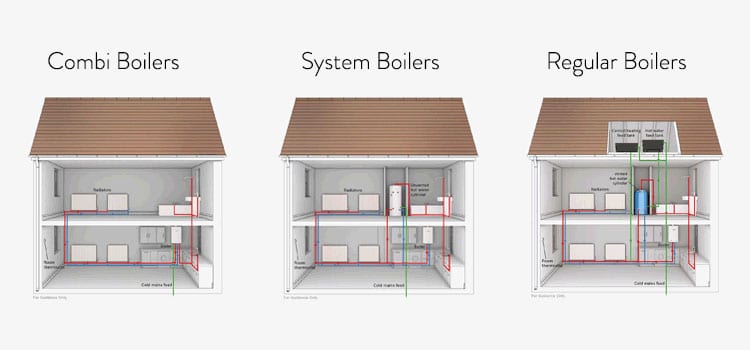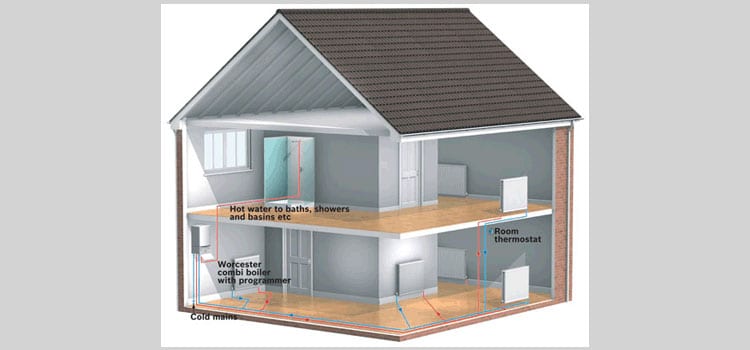Different Types of Gas Boilers for your Central Heating System

Types of Gas Boilers If you have the unfortunate problem of a boiler breakdown in winter and you have to replace your gas boiler or you are simply looking to upgrade your gas boiler then there are a few things you need to consider when choosing what type of boiler to install in your home. […]
How Does a Combi Boiler Work?

Combi Boiler / Combination Boiler A combi boiler or ( combination boiler ) is an ingenious space-saving idea and an increasingly popular choice in homes. Combi boilers now account for well over half of all the new domestic boilers installed every year. A combi boiler is both a high-efficiency water heater and a central heating […]